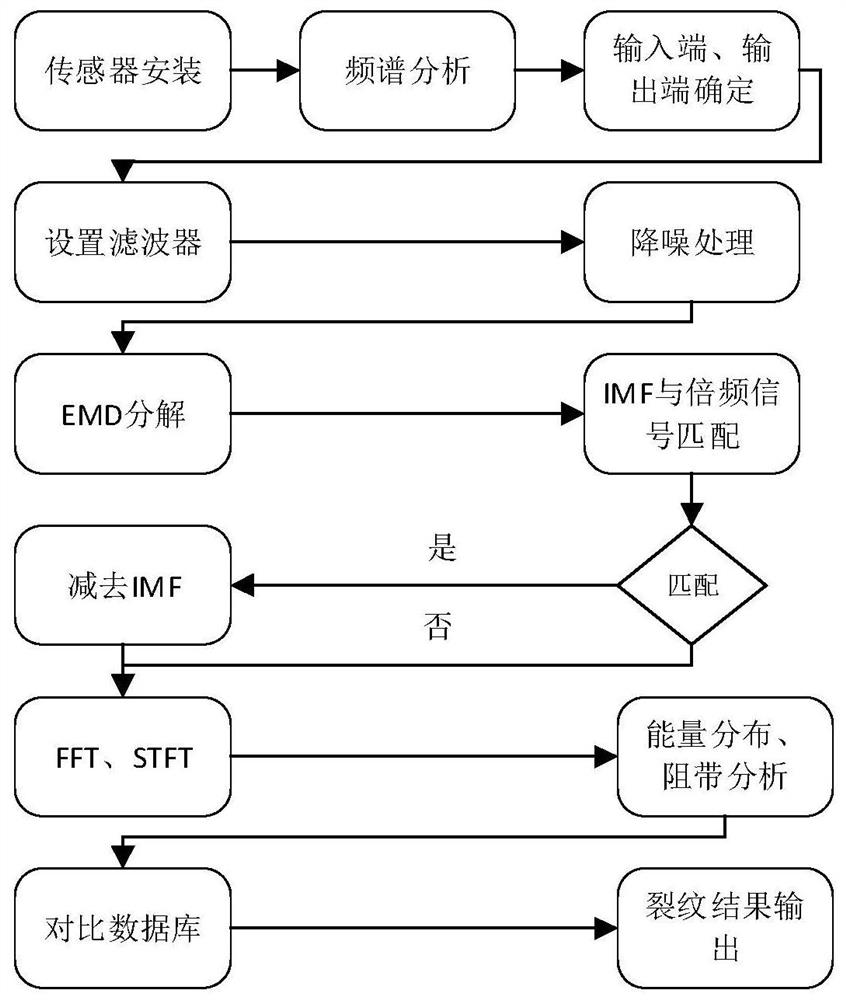Recognition and Extraction Method of Transverse Crack Feature of Stepped Cylindrical Shaft Elastic Wave Signal
A transverse crack and feature recognition technology, which is applied in the field of non-destructive crack detection and signal processing, can solve problems such as frequency multiplication signal interference, and achieve accurate analysis results
- Summary
- Abstract
- Description
- Claims
- Application Information
AI Technical Summary
Problems solved by technology
Method used
Image
Examples
Embodiment Construction
[0022] In order to enable those skilled in the art to better understand the present invention, the technical solution of the present invention will be further described below in conjunction with the accompanying drawings and embodiments.
[0023] like figure 1 and 2 As shown, the method for identifying and extracting transverse crack features of a stepped cylindrical axial elastic wave signal includes the following steps:
[0024] (1) A three-way acceleration sensor or a three-way displacement sensor are respectively arranged at the two ends of the stepped cylindrical shaft to be tested, and the signals at both ends of the stepped cylindrical shaft to be tested (can be vibration acceleration or vibration) Amplitude), the three signals at each end synthesize an elastic wave signal. The elastic wave is input from one end of the stepped cylindrical shaft to be tested and output from the other end; the elastic wave signal with large vibration energy corresponds to the input end ...
PUM
 Login to View More
Login to View More Abstract
Description
Claims
Application Information
 Login to View More
Login to View More - R&D
- Intellectual Property
- Life Sciences
- Materials
- Tech Scout
- Unparalleled Data Quality
- Higher Quality Content
- 60% Fewer Hallucinations
Browse by: Latest US Patents, China's latest patents, Technical Efficacy Thesaurus, Application Domain, Technology Topic, Popular Technical Reports.
© 2025 PatSnap. All rights reserved.Legal|Privacy policy|Modern Slavery Act Transparency Statement|Sitemap|About US| Contact US: help@patsnap.com


